Help Us Build a Forever Home for Wildlife!
Pacific Wildlife Care is thrilled to announce our plans for a new, permanent home in San Luis Obispo. Located on a beautiful 10-acre property, the Kim and Derrel Ridenour Wildlife Rehabilitation Center will enable us to better serve our community’s wildlife. Our comprehensive goal of $11.5 million will secure funding needed for the construction of this transformational project and create a sustainable future for PWC. Thanks to the generosity of our supporters, we’ve raised $5.7 million towards the $7 million needed for initial planning and construction needs. Additionally we have raised $3.8 million in legacy gifts to help create a sustainable future for PWC.
With construction starting in early 2025, your support is vital. Donate today to help us create a brighter future for wildlife in San Luis Obispo County.
Behind the Scenes at PWC
Pacific Wildlife Care (PWC) has been an advocate for wildlife in San Luis Obispo County since 1984.
From that time we have grown from a small group of dedicated home rehabilitators into a successful non-profit organization with a well-equipped rehabilitation center, a full-time wildlife veterinarian, a small paid staff, and nearly 200 volunteers. In addition to the Rehabilitation Center, which is open every day of the year, we maintain a Wildlife Hotline that the public can call to report distressed wildlife (injured, sick, orphaned) and to receive information about our local wildlife.
The Latest from PWC
Pacific Wildlife Care News
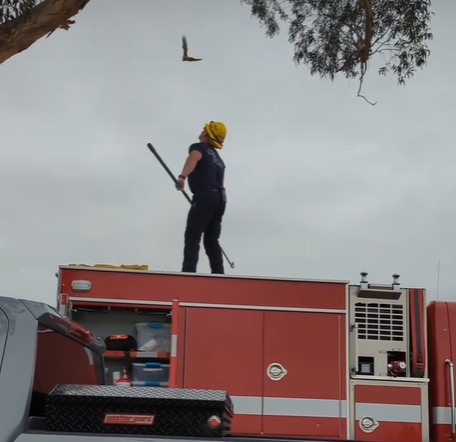
Hanging by a Wing
Such an innocuous thing – a piece of string, likely from a kite. Innocuous, maybe, to the human eye, but […]
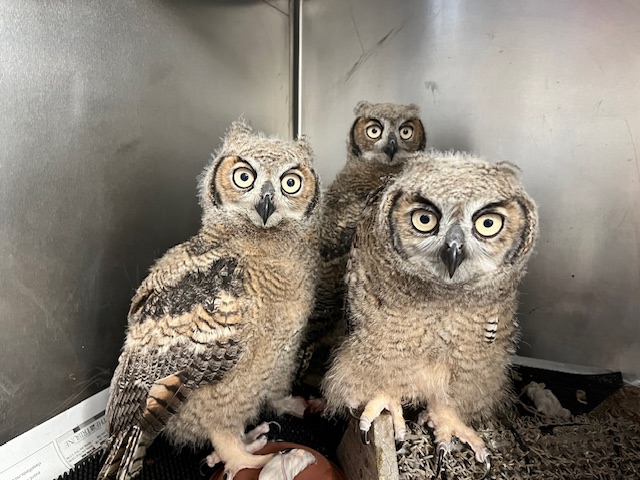
Bringing Up Baby (Owls)
The surge of baby birds at PWC every spring and summer – beginning with raptors, followed soon by songbirds – […]
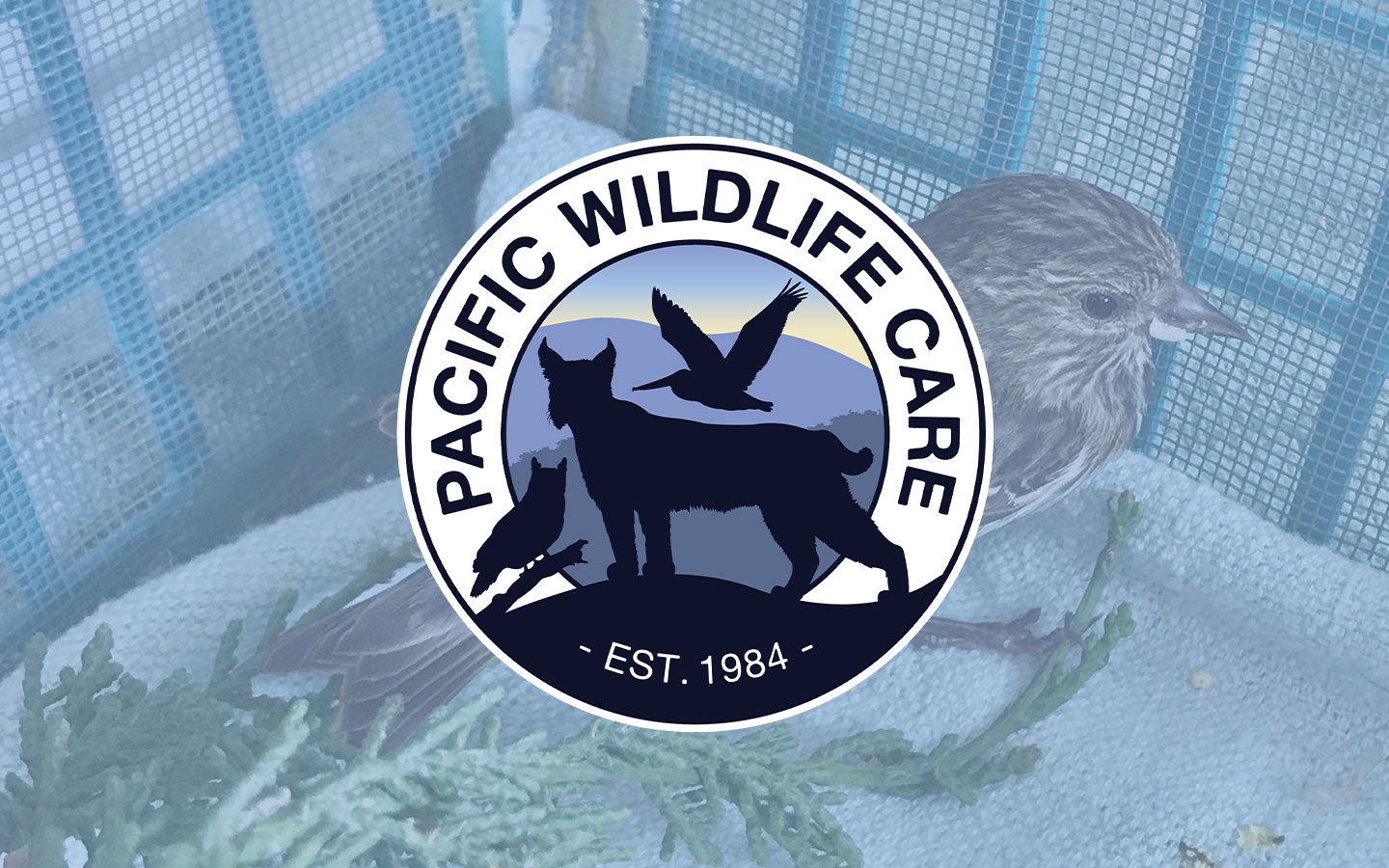
The Care and Feeding of All Those Babies
Spring is turning to summer, and the demands of the Baby Bird Program (BBP) are intensifying. At the hub of […]
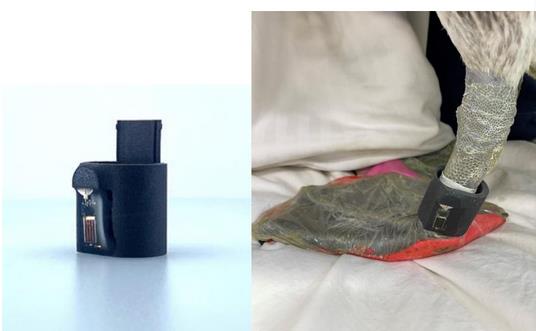
PWC’s Test Pilot
In May 2023, rehabilitated Brown Pelican 23-757 became the first ever pelican to be fitted with a promising new tracking […]
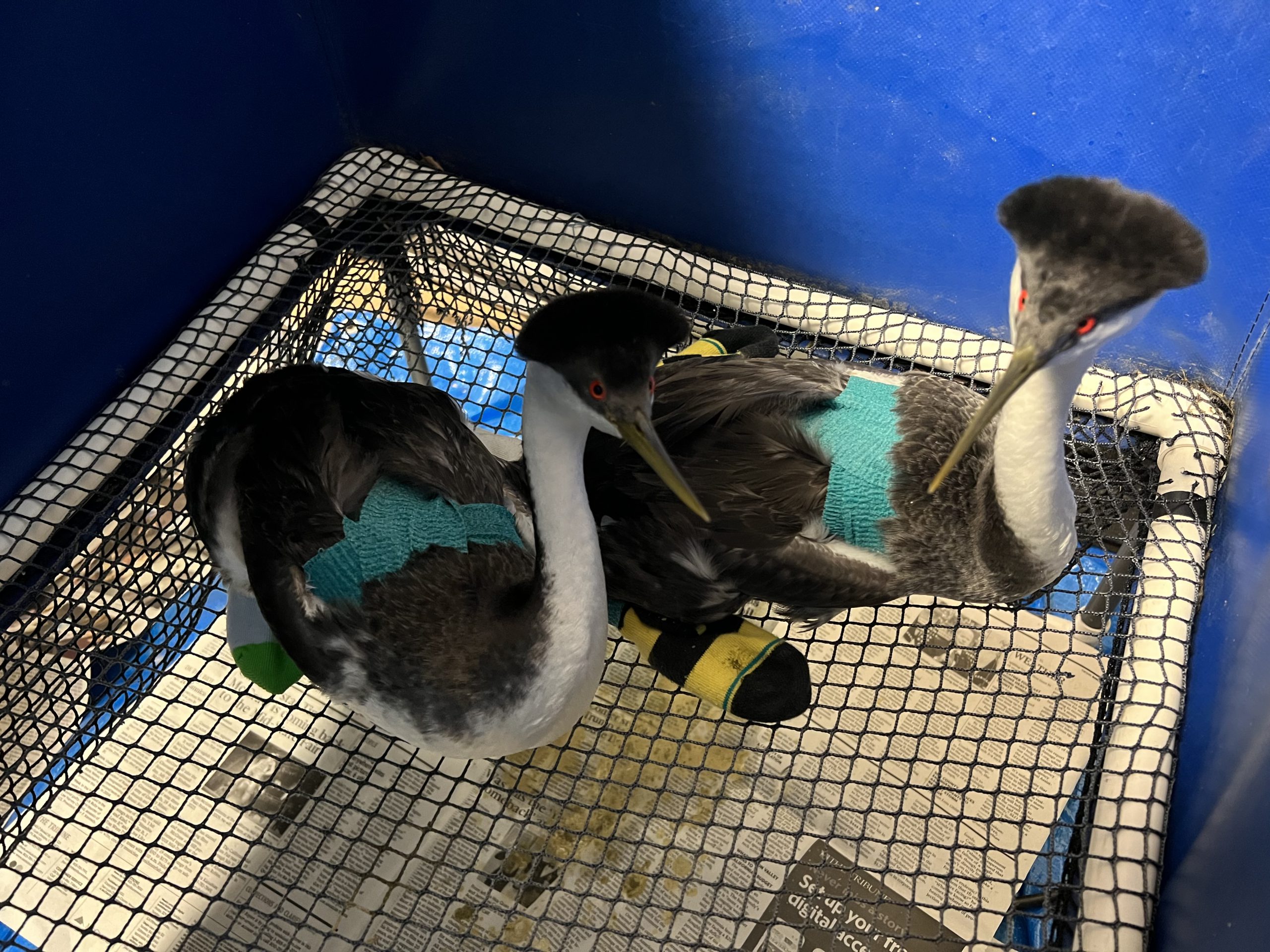
Winter of the Grebes
For a while this season, PWC turned into “Grebe Town.” Western and Clark’s Grebes filled the treatment room, carriers, drying […]

Release Story: RTHA #2717
On Christmas Day, PWC received a call from a Paso Robles resident, Alton, who explained that his kids were playing […]
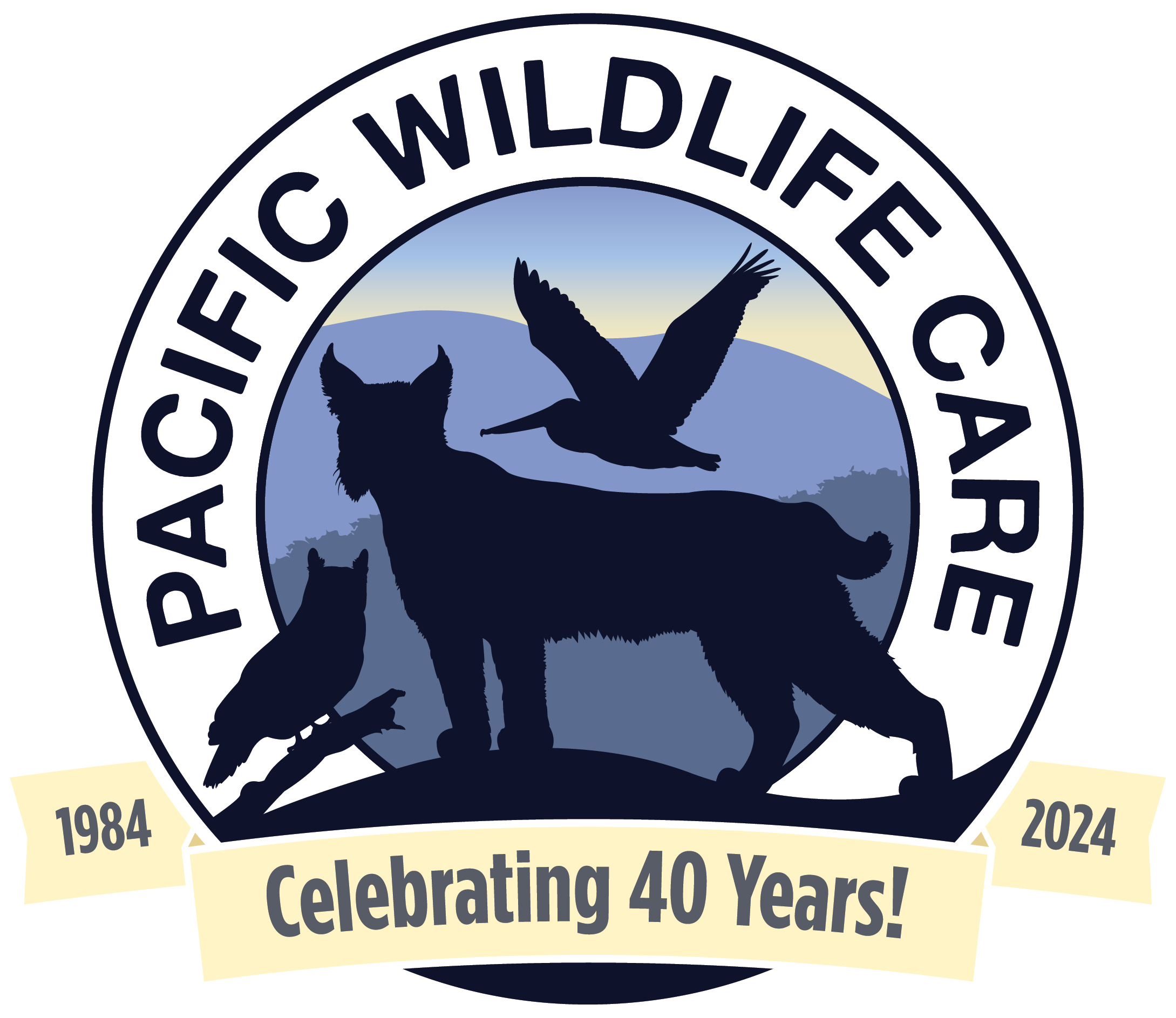






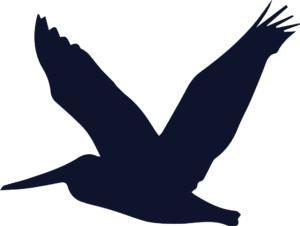
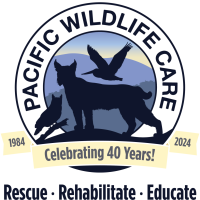
Facebook Posts
While we use many specialized tools to care for our wildlife patients, we also use household items—some may be surprising! From jar lids for feeding infant mammals to mirrors for providing orphaned baby birds a “sibling,” we get creative with ways to provide the best care for the diversity of animals we treat…and we treat over 200 species each year!
Our center is always in need of cleaning, feeding, and everyday supplies. Especially with baby season around the corner, you can help us with our daily needs by donating through our website or perusing our wishlists:
Amazon: amazon.com/hz/wishlist/ls/Y158U67U1M83?ref_=wl_share
Chewy: chewy.com/g/pacific-wildlife-care_b106316776
Thank you for being part of this life-saving work! Your generosity makes all the difference 💛
#WildlifeRehab #SupportWildlife #SupportNonprofits #amazonwishlist #chewywishlist ... See MoreSee Less
Happy World Wetlands Day! Today, we celebrate the vital role wetlands play in supporting life on our planet. We are so fortunate to live among wetlands…they’re more than just beautiful—they’re essential! Wetlands are biodiversity hotspots and
🦆 Provide critical habitat for many species, including birds and mammals during migration and breeding seasons
💧 Act as natural water filters, improving water quality while minimizing impacts from floods and erosion
🌿 Store carbon, helping to combat climate change
You can help by supporting wetland restoration projects and advocating for conservation policies to safeguard these incredible ecosystems.
Take a moment today to appreciate the wetlands around us and the life they sustain 💚 Let's protect these natural treasures for generations to come!
#WorldWetlandDay ... See MoreSee Less
We’re hiring for our busy season—join our team! We have two exciting job opportunities available:
👉 Seasonal Wildlife Rehabilitation Technician
👉 Baby Bird Program Technician
If you have experience in wildlife rehabilitation and want to make a difference, we’d love to hear from you! Find full job details and apply on our website under “Get Involved” > “Job Openings” or click the link here: apply.workable.com/pacific-wildlife-care/?lng=en
🌟 Apply as soon as possible! We will be closing the applications soon, so don’t wait!
Our summer Wildlife Rehabilitation Internship application process is also starting—stay tuned for details!
#JointheTeam #PacificWildlifeCare ... See MoreSee Less
⚠️ Please properly dispose of all fishing gear!
Improperly discarded or abandoned fishing tackle poses a threat to wildlife that live near water and eat fish, including seabirds, osprey, and ducks. Animals can become tangled in lines, hooked by stray tackle, or ingest toxic lead sinkers.
Please pick up hooks or line you find and dispose of them in a designated receptacle. Birds may raid trash cans so if secure cans or designated fishing receptacles can’t be found, take it home to be cut up and discarded safely away from wildlife. If you find wildlife with line or hooks on them, call your local wildlife rehabilitation center. They will x-ray the animal to be sure there are no swallowed hooks, plus treat any injuries that may not be apparent without a careful examination. Please do not try to remove hooks yourself—our staff have the tools and expertise to ensure the safest and most humane care for the animal.
Recently, we treated an influx of pelicans with fishing gear-related injuries. The pelican pictured arrived trailing a large mass of fishing line and hooks, with one hook embedded in his wing and another in his leg. Thanks to the efforts of our team, the hooks were removed, the wounds were treated, and after a month of recovery, the pelican was healthy enough to be released back into Morro Bay.
Wildlife will thank you for keeping fishing line, hooks, and sinkers out of their habitat 🌊
#Fishing #FishingLineKills #BrownPelican #ProtectWildlife #WildlifeRehab #Seabird ... See MoreSee Less